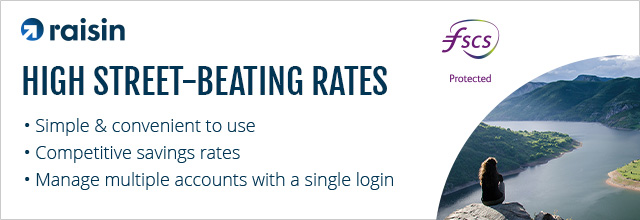Featured - ISA allowance
What is the 2024/25 ISA allowance?A new tax-year means a refreshed ISA allowance to allocate. Find out more about the 2024/25 ISA allowance...
Savings
ISAs
Mortgages
Buy to let
Specialist mortgages
Featured - Debt and your credit score
How debt impacts your credit scoreA healthy credit score has its benefits, so make sure you manage your debt correctly.
Loans
Featured - travel insurance
Travel insurance 2024Discover the best travel insurance policy for your next trip.
Home & vehicle
Health & travel
Featured - High interest current accounts
Find current accounts offering in-credit interest rates up to 5.00% AER.
Current accounts
Featured - Purchase Cards
Best purchase credit cardsExplore the best cards with a 0% introductory period.
Credit cards
Credit repair
Calculators & guides
Featured - The triple lock explained
Could the value of your state pension rise by more than inflation?
Retirement
Business savings
Business products
Business insurance
How much can I give as a cash gift?
How much can I give as a cash gift?Will your loved one's gift be tax affected?
Categories
Featured guides
- What is an investment platform
- Can you open a bank account without proof of address
- What kind of account is a trust account
- The best UK card machine and online payment services
- The rules on inheriting ISAs
- What are the costs of buying a home
- Should you increase mortgage repayments or your pension contribution
Popular news
Latest news - by category
Other money & finance news
Featured Star Ratings categories
Other Star Ratings categories
Featured - ISA allowance
What is the 2024/25 ISA allowance?A new tax-year means a refreshed ISA allowance to allocate. Find out more about the 2024/25 ISA allowance...
Savings
ISAs
Mortgages
Buy to let
Specialist mortgages
Featured - Debt and your credit score
How debt impacts your credit scoreA healthy credit score has its benefits, so make sure you manage your debt correctly.
Loans
Featured - travel insurance
Travel insurance 2024Discover the best travel insurance policy for your next trip.
Home & vehicle
Health & travel
Featured - High interest current accounts
Find current accounts offering in-credit interest rates up to 5.00% AER.
Current accounts
Featured - Purchase Cards
Best purchase credit cardsExplore the best cards with a 0% introductory period.
Credit cards
Credit repair
Calculators & guides
Featured - The triple lock explained
Could the value of your state pension rise by more than inflation?
Retirement
Business savings
Business products
Business insurance
How much can I give as a cash gift?
How much can I give as a cash gift?Will your loved one's gift be tax affected?
Categories
Featured guides
- What is an investment platform
- Can you open a bank account without proof of address
- What kind of account is a trust account
- The best UK card machine and online payment services
- The rules on inheriting ISAs
- What are the costs of buying a home
- Should you increase mortgage repayments or your pension contribution
Popular news
Latest news - by category
Other money & finance news
Featured Star Ratings categories
Other Star Ratings categories

_Savings_RaisinUK-6MonthFixedTermDeposit(91765)_125x100.png)


_Savings_RaisinUK-3MonthFixedTermDeposit(91764)_125x100.png)
_Savings_125x100.png)


_Savings_125x100.png)
Limited(21475)_Savings_125x100.png)
_Savings_HLActiveSavings-6MonthFixedTermDeposit(91751)_125x100.png)
_Savings_RaisinUK-3MonthFixedTermDeposit(91271)_125x100.png)
_Savings_SagaSavings-3MonthFixedTermDeposit(91138)_125x100.png)
_Savings_HLActiveSavings-3MonthFixedTermDeposit(91750)_125x100.png)


